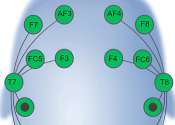Imaging technique IDs plaques, tangles in brains of severely depressed older adults
Depression is one of the most common mental disorders in the elderly, but little is known about the underlying biology of its development in older adults.
Nov 8, 2011
2
0



